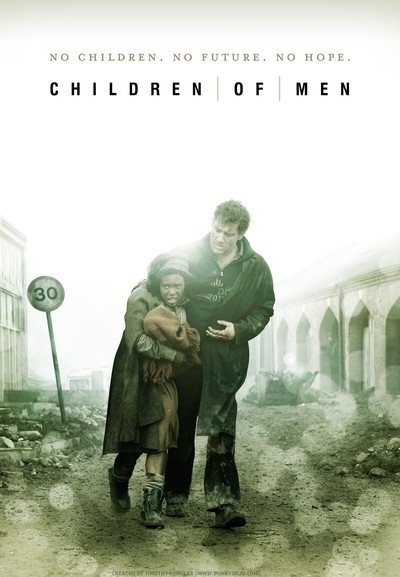The beginning and ending of Mathieu Kassovitz’s La Haine are snapshots of police brutality directed at minority individuals. The former is composed of footage and photography of actual riots in French banlieues re-contextualized afterwards for the purposes of the narrative, depicting an attack on a police station. The latter is a small confrontation involving the films’ trio of leads, tense in Kassovitz’s slickly thunderous editing, the camera’s subjectivity, and the racist violence that has hounded them as they’ve gone about their day.
La Haine is set over a single day, following three friends from immigrant families living on a housing estate: a white Jewish man, a North African Muslim, and a black man -played respectively by Vincent Cassel, Saïd Taghmaoui, and Hubert Koundé, all as characters with the same names. Their friend Abdel was the man arrested and beaten in the incident that sparked the riots. As such, Vinz is determined to kill a cop with a gun he recovered should Abdel die, Hubert refuses to do anything that would provoke the police to further violence, and Saïd seems to take the whole situation for granted. But throughout their day these three experience constant racial and class profiling, and run afoul of the police time and again.
The title translates to “Hate” and is more explicitly taken from a line of Hubert’s: “La haine attire la haine” - “Hatred breeds hatred”. It’s a theme with wide connotations for French society that Kassovitz roots squarely in racism, anti-Semitism, and more specifically the presence of such bigotries in law enforcement. The police appear sporadically, whether in uniform or plainclothes, but always to antagonize the leads. They are seen as thugs, prideful in their power, such as when an officer breaks up a gathering on a rooftop or when Saïd is arrested merely for wanting to see his friend in hospital. One particularly uncomfortable scene sees Saïd and Hubert in police custody where they are physically and verbally abused by veteran officers teaching a rookie. Amid all this is one officer (Marc Duret) from their neighbourhood who claims to be a friend and a “good cop”, but is routinely put in situations where he has to stand against them.
It all reads incredibly current twenty-five years later, as though it could have been ripped from todays’ headlines and protests. What makes it especially resonant is how Kassovitz leaves no stone unturned. He very clearly draws the line between the hellraising attitude and lifestyles of his characters and the economic depression that forces them into these roles. They take the train into Paris at one point and the distinction between the rich bustling city and their own impoverished development is palpable in a terrific dolly zoom overlooking the Place d’léna. In fact, the stylish filmmaking overall is extremely effective, utilizing a lot of precision editing choices to illustrate frames of mind.
It’s especially notable in a number of moments centering on Vinz, who’s got the most hatred for the police, but the least to lose. He’s the only one of the three who is never arrested, and though his ideals about challenging authority and changing the system are just, he also idolizes Travis Bickle from Taxi Driver a bit too much in that quintessential way of people who misunderstand the film. His reasoning for his beliefs, his character journey, and where he ends up are incredibly fascinating, and worthy of their own discussion.
La Haine on a whole is worthy of much deeper analysis and as a springboard for larger discussion -as much as the film it is most often compared to, Do the Right Thing. And now as it proves itself unfortunately ageless, the time is ripe to be having that conversation.
Criterion Recommendation: Children of Men (2006)
The fact that only Alfonso Cuarón’s Spanish-language movies are in the Criterion Collection stinks of a little bit of bias. His English movies have been pretty great too, and best among them is his dystopian masterpiece Children of Men, both a smart engrossing thriller and a prescient cautionary tale. In the best role of his career, Clive Owen plays a beleaguered cynic living in a dying world of infertility, tasked with delivering the last pregnant woman (an astounding Clare-Hope Ashitey) to safety beyond the borders of Great Britain. Along the way the film comments severely on Britain and Europe’s treatment of refugees and asylum seekers during periods of intense political upheaval, and it features some of the best cinematography from Emmanuel Lubezki. The story, with its Biblical allusions and strong sense of hope amid despair is utterly captivating; and Cuarón demonstrates here more than anywhere else his exceptional belief in the power of human endurance.
Ways to Help Black Lives Matter: https://blacklivesmatters.carrd.co/#donate
Support me on Patreon: https://www.patreon.com/JordanBosch
Support me on Patreon: https://www.patreon.com/JordanBosch
Follow me on Twitter: https://twitter.com/Jordan_D_Bosch
Letterboxd: https://letterboxd.com/jbosch/



Comments
Post a Comment